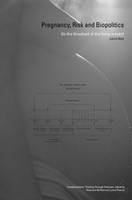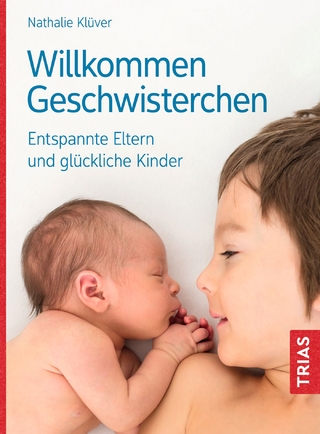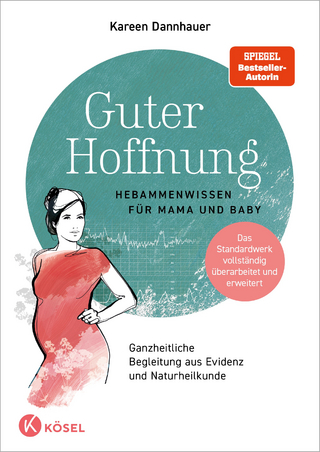
Pregnancy, Risk and Biopolitics
On the Threshold of the Living Subject
Seiten
2006
Routledge (Verlag)
978-0-415-39257-0 (ISBN)
Routledge (Verlag)
978-0-415-39257-0 (ISBN)
Calling attention to the significance of population politics for the unsettling of the birth threshold, Weir argues that risk techniques are heterogeneous, contested with expertise, and plural in their political effects.
Traditionally, Euroamerican cultures have considered that human status was conferred at the conclusion to childbirth. However, in contemporary Euroamerican biomedicine, law and politics, the living subject is often claimed to pre-exist birth. In this fascinating book Lorna Weir argues that the displacement of birth as the threshold of the living subject began in the 1950s with the novel concept of ‘perinatal mortality’ referring to death of either the foetus or the newborn just prior to, during or after birth.
Weir’s book gives a new feminist approach to pregnancy in advanced modernity focusing on the governance of population. She traces the introduction of the perinatal threshold into child welfare and tort law through expert testimony on foetal risk, sketching the clash at law between the birth and perinatal thresholds of the living subject. Her book makes original empirical and theoretical contributions to the history of the present (Foucauldian research), feminism, and social studies of risk, and she conceptualizes a new historical focus for the history of the present: the threshold of the living subject.
Calling attention to the significance of population politics, especially the reduction of infant mortality, for the unsettling of the birth threshold, this book argues that risk techniques are heterogeneous, contested with expertise, and plural in their political effects. Interview research with midwives shows their critical relation to using risk assessment in clinical practice. An original and accessible study, this book will be of great interest to students and researchers across many disciplines.
Traditionally, Euroamerican cultures have considered that human status was conferred at the conclusion to childbirth. However, in contemporary Euroamerican biomedicine, law and politics, the living subject is often claimed to pre-exist birth. In this fascinating book Lorna Weir argues that the displacement of birth as the threshold of the living subject began in the 1950s with the novel concept of ‘perinatal mortality’ referring to death of either the foetus or the newborn just prior to, during or after birth.
Weir’s book gives a new feminist approach to pregnancy in advanced modernity focusing on the governance of population. She traces the introduction of the perinatal threshold into child welfare and tort law through expert testimony on foetal risk, sketching the clash at law between the birth and perinatal thresholds of the living subject. Her book makes original empirical and theoretical contributions to the history of the present (Foucauldian research), feminism, and social studies of risk, and she conceptualizes a new historical focus for the history of the present: the threshold of the living subject.
Calling attention to the significance of population politics, especially the reduction of infant mortality, for the unsettling of the birth threshold, this book argues that risk techniques are heterogeneous, contested with expertise, and plural in their political effects. Interview research with midwives shows their critical relation to using risk assessment in clinical practice. An original and accessible study, this book will be of great interest to students and researchers across many disciplines.
Lorna Weir is an associate professor in the Department of Sociology at the York Centre for Health Studies at York University, Ontario, Canada, and is a member of Health Care, Technology and Place, Canadian Institutes for Health Research (University of Toronto).
1. On the Threshold of the Living Subject 2. A Genealogy of Perinatal Mortality 3. Health beyond Risk: A Midwifery Ethos in Prenatal Care 4. Legal Fiction and Reality Effects: Evidence of Perinatal Risk 5. Child Welfare at the Perinatal Threshold: Making Orders Protecting Fetuses 6. Biopolitics at the Threshold of the Living Subject 7. Bibliography
| Erscheint lt. Verlag | 27.7.2006 |
|---|---|
| Reihe/Serie | Transformations |
| Zusatzinfo | 8 Line drawings, black and white; 8 Illustrations, black and white |
| Verlagsort | London |
| Sprache | englisch |
| Maße | 156 x 234 mm |
| Gewicht | 408 g |
| Themenwelt | Sachbuch/Ratgeber ► Gesundheit / Leben / Psychologie ► Schwangerschaft / Geburt |
| Medizin / Pharmazie ► Gesundheitsfachberufe ► Hebamme / Entbindungspfleger | |
| Sozialwissenschaften ► Pädagogik ► Sozialpädagogik | |
| Sozialwissenschaften ► Politik / Verwaltung ► Politische Theorie | |
| Sozialwissenschaften ► Soziologie ► Allgemeines / Lexika | |
| Sozialwissenschaften ► Soziologie ► Gender Studies | |
| ISBN-10 | 0-415-39257-8 / 0415392578 |
| ISBN-13 | 978-0-415-39257-0 / 9780415392570 |
| Zustand | Neuware |
| Haben Sie eine Frage zum Produkt? |
Mehr entdecken
aus dem Bereich
aus dem Bereich
Achtsam sprechen in Kita, Krippe und Kindertagespflege
Buch | Softcover (2022)
Verlag Herder
18,00 €
entspannte Eltern und glückliche Kinder
Buch | Softcover (2024)
Trias (Verlag)
17,99 €


